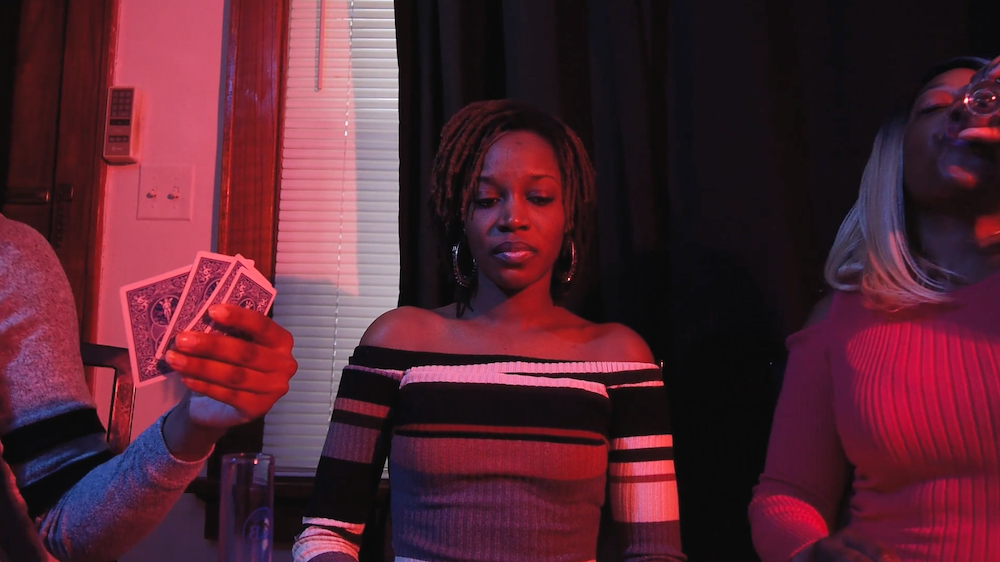If you’re interested in sharing your opinion on any cultural, political or personal topic, create an account here and check out our how-to post to learn more.
____
Co-written by HEYTHAT’SJAZ PRODUCTIONS
____
When you’re Black, mental illness isn’t a topic you talk about during family dinner — or ever. It’s often swept under the rug and told to us that it is a “choice” that can be handled through prayer. Even though that may be true, Black mental health is an important issue that needs to be addressed.
According to the Health and Human Services Office of Minority Health, “Black Americans are 20% more likely to experience serious mental health problems than the general population. Black youth who are exposed to violence are at a greater risk for PTSD by over 25%. Black Americans are also more likely to be exposed to factors that increase the risk for developing a mental health condition, such as homelessness and exposure to violence.”
Many people deal with depression, especially within the Black community because of the things we have to go through day by day just because of the color of our skin. Not only are we seeing Black men being killed and many Black people dying with COVID-19 at a disproportionate rate, we’re also seeing Black women, like Breonna Taylor, Sandra Bland and so many other names whose murders weren’t caught on video. Black women are also dying at the hands of “medicine” and being swept under the rug, not receiving their due justice.
Because of my frustration and of my own personal experience with depression and suicidal thoughts, I decided to overcome them by talking about the mental health disparities concerning Black women through what I know makes me happy — art. So, through the power of film, I created my experimental short film, “You Are Not Alone.”
Erica Richards, chair and medical director of the Department of Psychiatry and Behavioral Health at Sibley Memorial Hospital reports that women are at least twice as likely to experience an episode of major depression as men and, compared to their caucasian counterparts, Black women are only half as likely to seek help.
This reminded me of the moment when I realized that seeking help for myself was a must and wasn’t anything to be ashamed of, especially since it was hard to talk about it to my loved ones who didn’t understand the severity of what I was going through.
It all started when my family and I came from Port Au Prince, Haiti, and came to the U.S. when I was around four years old. Growing up, I always felt I was more artistic because I loved to draw, sing and try my hand at learning to play instruments, like piano and violin.
During high school, I fell into a deep depression due to bullying and feeling out of place. I often fell asleep in my classes because of insomnia and dealing with my mom going through her own depression. Unbeknownst to me, people took pictures of me while sleeping and would share it on social media. I felt so alone and I didn’t have friends. I didn’t care about school or my life.
Towards my senior year of high school, I finally opened up to my guidance counselor. She suggested that I still try to attend college and to go to an all-girls private school named Alverno College. She expressed to me that she thought that environment would be better.
My first year of college went well. I passed all my classes because I was more focused, and I felt like I was getting my depression in check. But, during my second year, I became depressed again. I didn’t major in anything art related, even though I knew that was what I was passionate about. This made me feel unfulfilled. I didn’t like my major and felt something was missing. Eventually, my depression became worse and I tried to commit suicide.
I admitted myself into a mental health hospital where I was diagnosed with depression and an overactive thyroid. After I was released, I still wasn’t sure about what I wanted to do. But once I realized that life is too short to be unhappy, I decided to focus on what makes me happy and pursued my art.
Since Ms. Rona hit and put a halt to my plans of moving to a new state to follow my dreams as a filmmaker, I decided to just work on my films, screenplays and a few photo series. Not only do we have to bob and weave against a deadly virus, it’s also been extremely difficult to witness what people, who look like me, are enduring.
I really believe that art is powerful and that representation matters. I am proud to see us using our voices to bring about social change. These changing narratives motivate me to work on my projects, which simultaneously keeps my mind off of my depression.
It’s extremely exhausting that Black women are expected to be strong and not show any emotion. By creating “You Are Not Alone,” I wanted to break that stigma and show that no matter what we go through, we are not alone.
The narratives pushed onto Black women of not being vulnerable and being superwoman are pressures that must be stopped. They are harmful and used to justify people treating us as if we are indestructible. Black women are looked to be everyone’s protector, but who will protect us? Black women need to be protected, and confronting mental health issues in the Black community will be the first step to start with our overall healing as people.
____
Follow Rosella Joseph on Instagram and Twitter at @rosellavizuals
Follow HEYTHAT'S JAZ PRODUCTIONS on Instagram at @heythatsjazproductions
